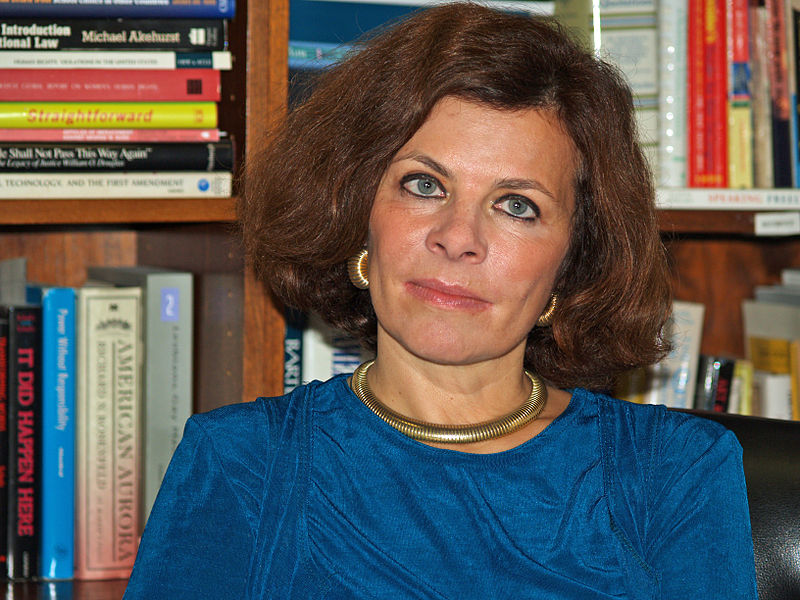
Nadine Strossen, who was ACLU president from 1991 to 2008, will present a “Conversation about Current Constitutional Controversies: Same-Sex Marriage, Police/Community Tension, NSA Surveillance, and More,” at 5:30 p.m. on Wednesday, Sept. 16, in Room 125 of the Science Building on the WCSU Midtown campus, 181 White St. in Danbury.
The event will also include comments by Stephen Glassman, executive director of the Connecticut ACLU, and two recently graduated law students of Strossen’s who are working on constitutional issues in the Danbury area: Jessica Richardson, a WCSU graduate who is an advocate at the Western Connecticut Association for Human Rights in Danbury and a candidate for the New Milford Town Council; and state Rep. Stephen Harding, R-Brookfield, who practices law in Danbury.
Although Strossen is a proponent of many positions that could be characterized as politically liberal — for instance, she says, “I am very proud that the ACLU was already advocating for same-sex marriage back in the dark ages of 1968” — she stressed that the ACLU has always been staunchly non-partisan and ideologically neutral, advocating civil liberties for clients and causes across the political spectrum. One of the ACLU’s most famous — or infamous — cases was defending the free speech rights of neo-Nazis to demonstrate in Skokie, Illinois, a town with many Holocaust survivors. The ACLU also has supported the free speech rights of corporations and unions to spend money on political campaigns, a position that most liberals reject.
“No matter who you are, and what your ideas are, you will strongly agree with some ACLU positions and strongly disagree with others,” Strossen said.
As a chaired professor of Constitutional Law at New York Law School, where she has taught since 1988, Strossen drills her students to be able to recognize and advocate all sides of every issue. “I specifically welcome criticism when I speak to audiences,” Strossen said. “All these subjects are arguable and I’m not there just to advocate but rather to encourage thinking and discussion. One of the beauties of our Constitution is that its open-textured language invites multiple interpretations and re-interpretations. For every difficult question that the Supreme Court considers, there are multiple plausible answers, and each answer gives rise to more questions.”
Of particular interest to students might be Strossen’s observations about rules that seek to govern sexual encounters between students. New and proposed “affirmative consent” requirements would require student couples to gain verbal agreement from each other at every stage of a physical and sexual encounter.
“As often happens when society tries to solve a problem — in this case, too many campuses doing too little to protect against or punish sexual misconduct — it overreacts, causing new problems,” Strossen said. “These affirmative consent rules violate rights of due process and privacy. They reverse the usual presumption of innocence. Unless the guy can prove that his sexual partner affirmatively consented to every single contact, he is presumed guilty of sexual misconduct. Will people have to wear body cameras?”
Strossen said she is optimistic about the country’s civic health despite current debates about civil liberties and constitutional rights, including issues with the criminal justice system, racial and gender discrimination, voting rights, and government surveillance.
“Regardless of what constitutional rights you consider important, you can take heart about recent and ongoing reforms that have been brought about through citizen activism,” Strossen said. “From advocates of gun-owners’ rights, to advocates of gay rights, many have succeeded in persuading the Supreme Court to interpret the Constitution to protect the rights they hold dear. I don’t know anybody who is truly hopeless. We allow protest and change in the political system. That’s why we remain a beacon for people from all over the world.”
For more information, call the Office of University Relations at (203) 837-8486.